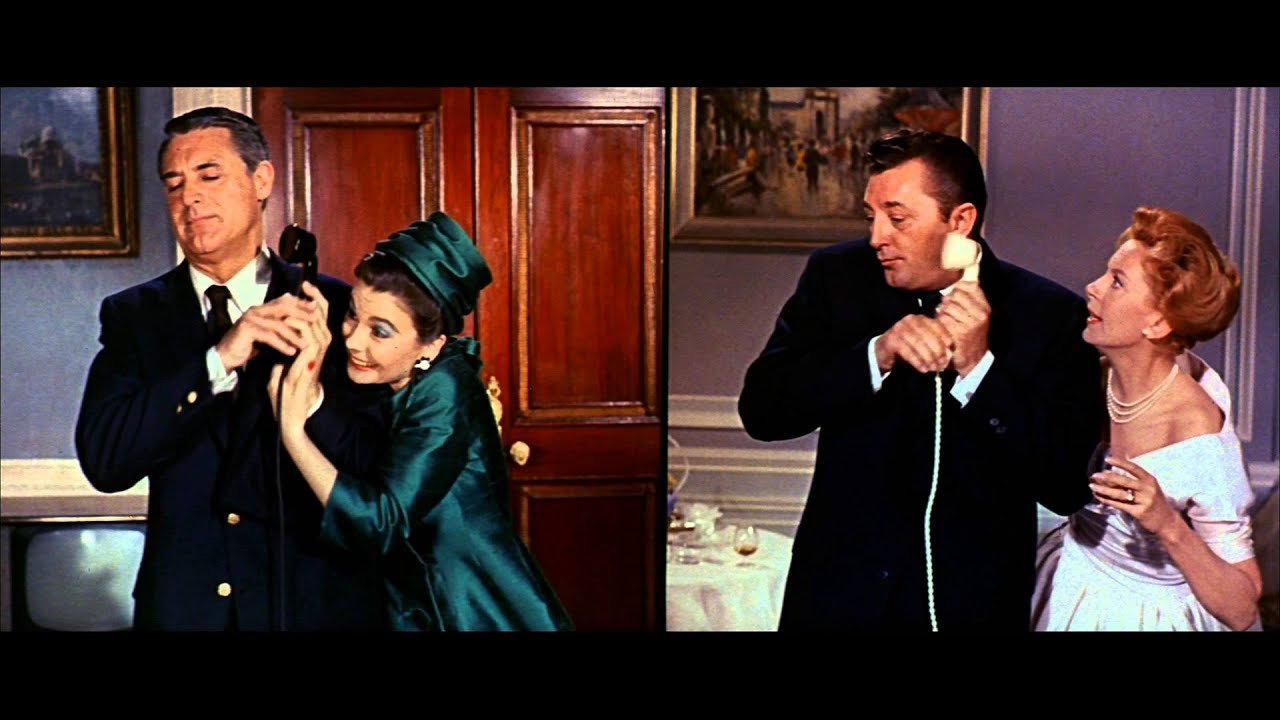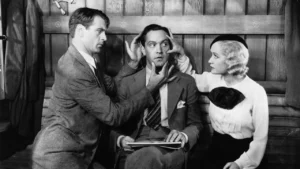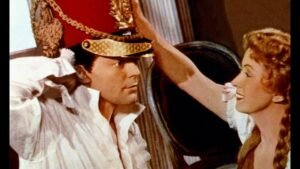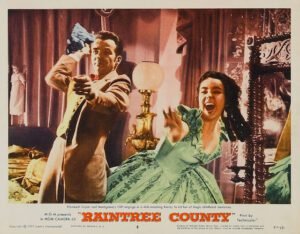The Grass Is Greener: A Cynical Charm Offensive in Classic Hollywood Romance
Delve into The Grass Is Greener (1960), a unique romantic comedy starring Cary Grant, Deborah Kerr, and Robert Mitchum. Discover why this cynical British film, penned by Margaret Vyner and Hugh Williams, offers a fresh take on classic Hollywood love triangles. Perfect for fans of vintage cinema and forgotten gems.

Uma das melhores sequências que nos remete a um recurso bastante utilizado na época: a divisão de telas para mostrar ao mesmo tempo as reações de todos os lados
A British couple residing in their stately mansion faces severe financial difficulties. They decide to open their home to the public to generate some income. One day, a millionaire gentleman visits and is instantly captivated by the wife. A passionate romance blossoms between them, transforming everyone’s lives.
The first time I watched The Grass Is Greener (1960), I found it quite dull. I couldn’t grasp the point of a romantic comedy where two men, like true gentlemen of the past, compete to win the affection of one’s wife. It wasn’t until my most recent rewatch that my perspective shifted. What truly helped me see the film with new eyes was a text written by my friend Rodrigo Vennino, from the blog Anos Perdidos.
In his piece, he uses an expression that immediately reveals this film to be a different kind of comedy than what we typically see in American productions. This distinctiveness stems from the screenplay being penned by the husband-and-wife duo Margaret Vyner and Hugh Williams, who were not only writers but also accomplished actors.
This pair injected a generous dose of cynicism into the dialogues among the four main characters: the cuckolded husband (Cary Grant), the seductive millionaire who threatens the stability of a monotonous marriage (Robert Mitchum), the compliant wife who nonetheless cannot resist the charm of the man who brings excitement to her almost monastic life (Deborah Kerr), and finally, the icing on the cake: the fourth character, connecting the first three, the voice of sincerity who doesn’t concern herself with acting like a lady (Jean Simmons). This fourth character is the element that shapes the love triangle, dissecting it and, at times, serving as that voice we all wish we could hear.
Stanley Donen’s direction is admirable. Renowned for his musicals, he remains one of the few living directors from Hollywood’s Golden Age. However, the screenplay is, in fact, the strongest point, as I continue to find it truly distinctive. Whether it’s the theme or the resolutions to the romances, which are sometimes modern and sometimes evoke ancient times.
Perhaps what I enjoyed most about rewatching it was rekindling the idea that the first impression isn’t always the most accurate. Because of this, I always like to give a story another chance at a later time.



